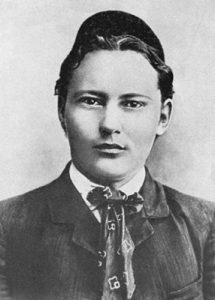
The name of Gabdulla Tukay is known not in Tatarstan only but also far beyond its borders. He is known by everyone who appreciates Art and who loves Poetry. Creative work of Tukay is multifaceted: he is a poet and a publicist, a literary critic and a public figure. He did as much for the development of the Tatar poetry and culture as a whole, as Pushkin did for the Russian poetry and culture.
Gabdulla Tukay was born in April, 1886 in Kushlavych village of the former Kazan province. After becoming an orphan very early in his life Gabdulla initially used to live with his grandfather, who sent the boy to Kazan in 1889. In 1895 at the age of nine Gabdulla moved to the town of Uralsk to stay with his cousin sister.
The childhood and adolescence of the poet passed in Uralsk. He entered the madrasah there and he started to write poems in this town. In this Urals’ town the young poet Tukay befriended with creativity of the grand Russian poets Pushkin and Lermontov. Their poems stole a way into the heart of the novice poet.
Working in a printing shop as a proofreader and forwarding agent, Gabdulla Tukay could not tolerate the exploitation, which prevailed there. For ten rubles monthly salary they demanded from him the amount of work, which seemed impossible. Typesetters and other workers used to live in the same situation. Once Tukay told the workers that they had to defend their rights and not be afraid of the owner.
The printing shop owner noticed that the young proofreader instigated workers to discontent, but he did not take any severe steps as he was afraid of Tukay’s pungent verses, whose poems were already published in the newspaper. He only loaded the freethinker with additional work.
But Tukay always remained faithful to the goals, which he had outlined for himself. He decided to begin a fight with the master, and started instigating the printing shop workers to come out with a claim demanding the salary increase. Seeing that he was a man of character the owner decided to get rid of Tukay and fired him from the printing shop.
The young Tukay faced a problem: where to go to? He was already a well-known poet by that time. His talent was appreciated by many newspaper owners in Kazan and other places and they were inviting the poet to come and work for them. Among those newspapers there was the one called «Vakyt» (Time), which belonged to a millionaire and gold-mines owner Rameev. In spite of the fact that Rameev was a poet himself and he was writing quite good poems Tukay decided not to work for them. His dream was Kazan where life was humming much more intensively than in Orenburg or Ufa. Thus, he rushed to Kazan.
Tukay loved his people and probably no other Tatar writers of the past ever have managed to express the spirit of the nation to such a depth and with such an artistic force, as he did so.
Tukay warmly and enthusiastically loved Kazan. All the best in his life was linked with this city. Yet at the same time he had to experience quite a few bitter moments in Kazan.
During the period of Tukay’s life in Kazan there was perhaps not a single album of his poetic works, which was not arrested. The friendship of Tukay with F. Amirhan, G. Kamal, G. Kulahmetov and Bolshevik Husain Yamashev advanced shaping of the poet’s ideological views. He was writing with great warmth about the first Tatar Bolshevik Kh. Yamashev.
Tukay liked Kazan, where the poet spent his last years of his life, and he had devoted a lot of beautiful lines to the city. The poet used to call Kazan a «radiant» city of science and art.
The fight against autocracy and against bourgeois nationalists took a lot of the poet’s strength. The health of Tukay deteriorated drastically. Doctors advised the poet to go to the south for treatment, but he could not afford it. Friends collected some money to send him for treatment in the countryside. However the disease had been disregarded for too long by this time already. The poet started feeling even worse in the village. It was decided to put Tukay into the hospital. After examination of the patient doctors asked him why he had not contacted the hospital earlier. The poet jocularly replied to this: «I was told that a hospital is the first station on the way to death and I would like to stay in this world a little longer.»
The poet died at five pm on April 15, 1913. Gabdulla Tukay died in the prime of his creative abilities and talent, as Gorky wrote, «as a result of starvation and consumption».
The Tatar people highly honor the memory of the outstanding popular poet. The name of Tukay has been awarded to the State Philharmonic Hall, to the Prize awarded for the best literary works and works of art. A street in Kazan has also been named after Tukay. In the place of the present Tukaevskaya street there used to be two streets earlier: Tikhvinskaya and Ekaterininskaya. The second was leading from the present Tatarstan Street to Caban.
Tukay used to live in the rooms of «Bulgar» (the corner of Kirova Street and Tatarstan Street). The memorial plaque has been fixed on the house where he used to live. The memorial plaque has been fixed on the house at the corner of Ostrovsky and Kavi Najmi Streets. There was a hospital located there in Tukay’s times (GIDUV clinic at present).
The body of Gabdulla Tukay lies at the Tatar cemetery in Kazan.
